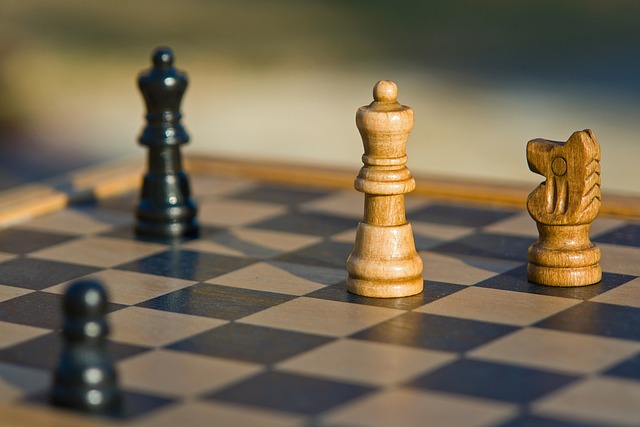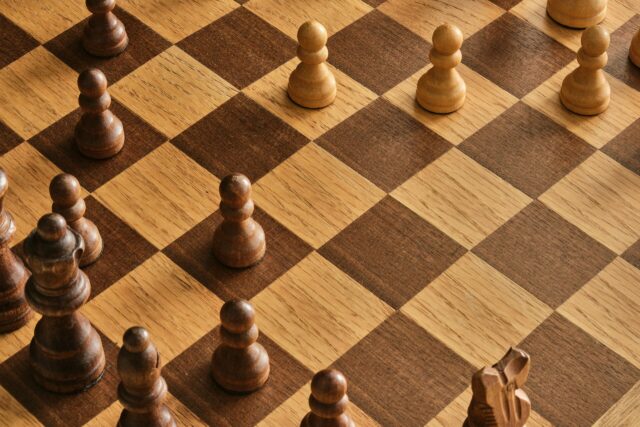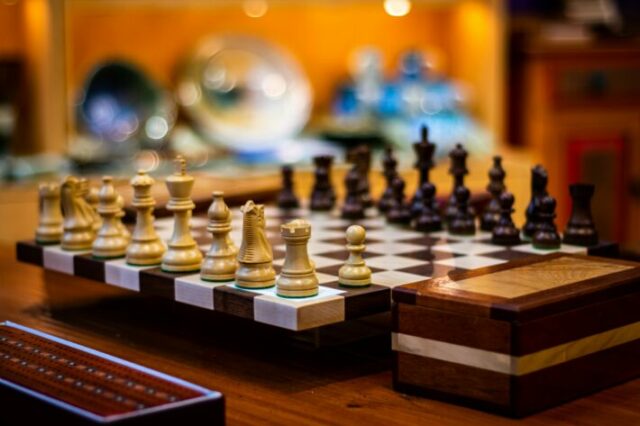In the world of chess, intuition is the secret weapon of grandmasters. It’s that unexplainable feeling, a gut instinct that guides them to make brilliant moves and outmaneuver their opponents. But what is the best way to develop this enigmatic chess intuition?
In this article, we will dive deep into the realm of chess strategy and explore unique approaches that will sharpen your mind’s eye, enhance your decision-making skills, and transform you into a formidable chess player.
How can we train our minds to think like a chess genius?
Training our minds to think like chess geniuses is an exhilarating endeavor. By immersing ourselves in the world of chess, studying the strategies of grandmasters, and practicing regularly, we can gradually develop the ability to see beyond the surface and anticipate moves with remarkable insight.
It involves honing our analytical skills, expanding our knowledge of tactical patterns, and embracing the art of deep thinking. Through dedication, perseverance, and a thirst for knowledge, we can unlock the doors to thinking like a true chess genius.
Is there a connection between intuition and pattern recognition in chess?
In the captivating realm of chess, intuition, and pattern recognition share a symbiotic relationship. Intuition acts as our inner compass, guiding us to recognize familiar patterns and make instinctive decisions.
It enables us to swiftly identify recurring motifs, tactical traps, and positional imbalances. By nurturing our intuition and diligently training our pattern recognition abilities, we can tap into a wellspring of strategic wisdom and gain an edge over our adversaries.
Are there specific exercises to enhance chess intuition?

To supercharge our chess intuition, specific exercises can serve as powerful tools. Engaging in tactical puzzles, where quick calculations and intuitive leaps are essential, sharpens our decision-making skills and refines our intuition.
Additionally, actively analyzing and annotating our own games allows us to reflect on our thought processes and uncover patterns and tendencies. By embracing these exercises with enthusiasm, we can awaken the latent potential of our chess intuition.
What role does analysis play in developing chess intuition?
Analysis is the crucible in which chess intuition is forged. Through meticulous examination of our own games, as well as studying the masterpieces of renowned players, we develop a deeper understanding of the intricacies of chess.
It unveils hidden nuances, strategic ideas, and critical moments that enrich our intuitive decision-making. By delving into analysis with an inquisitive mind, we refine our intuition and elevate our chess prowess.
Can studying classic chess games improve your intuitive abilities?
Delving into the annals of classic chess games is a treasure trove for improving our intuitive abilities. Studying the strategic masterstrokes of legendary players illuminates the underlying principles and patterns that shape the game.
By immersing ourselves in the timeless wisdom of these encounters, we expand our repertoire of intuitive moves and gain valuable insights into the artistry of chess.
How can visualization techniques strengthen your chess intuition?
Visualization is a potent technique for strengthening chess intuition. By vividly picturing the board and mentally simulating moves, we train our mind’s eye to anticipate patterns, visualize positional changes, and foresee future outcomes.
This mental exercise sharpens our intuitive decision-making, allowing us to make bold, calculated moves with confidence. Through consistent practice and harnessing the power of imagination, we can unlock new dimensions of chess intuition.
What are the benefits of playing blindfolded chess?

Engaging in the enigmatic world of blindfolded chess brings forth numerous benefits for enhancing chess intuition. By relying solely on our mental imagery and spatial awareness, we push the boundaries of our intuitive capabilities.
Blindfolded chess sharpens our memory, strengthens visualization skills, and deepens our understanding of the game’s intricacies. Embrace the challenge of blindfolded chess and open up a realm where intuition reigns supreme.
Is it possible to learn from your opponent’s intuition?
Chess is not only a battle of wits but also an opportunity to learn from the intuition of our opponents. By keenly observing their moves, their hesitations, and their patterns, we can glean insights into their decision-making process.
Analyzing their intuitive choices allows us to broaden our own perspective and adapt our strategies. In the game of chess, even our adversaries become invaluable teachers on the path to developing our intuition.
How does understanding pawn structures contribute to chess intuition?
Understanding pawn structures is like deciphering the language of chess intuition. The placement and interactions of pawns shape the dynamics of the game, dictating strategic plans and tactical possibilities.
By delving into the intricacies of pawn structures, we develop a keen sense of positional understanding, enabling us to intuitively navigate the chessboard, exploit weaknesses, and seize opportunities. Recognizing the nuances of pawn formations empowers us to make informed decisions and elevate our chess intuition to new heights.
Can meditation techniques enhance chess intuition?
The fusion of chess and meditation creates a harmonious symphony that elevates our chess intuition. Meditation techniques cultivate focus, mental clarity, and an enhanced awareness of the present moment.
By incorporating meditation into our chess practice, we learn to quiet the noise of distractions, strengthen our concentration, and tap into the wellspring of our intuitive capabilities. Through this mindful journey, we awaken the dormant potential within us, propelling our chess intuition to flourish.
What can we learn from intuitive chess champions throughout history?
Intuitive chess champions throughout history have left a trail of invaluable lessons for us to uncover. By studying their games and analyzing their intuitive decisions, we gain insights into their strategic mindset, pattern recognition abilities, and creative thinking.
These chess virtuosos inspire us to think outside the box, trust our instincts, and embrace calculated risks. The stories of intuitive chess champions serve as beacons of wisdom, guiding us on our own quest to unlock the depths of our chess intuition.
Are there any unconventional training methods to boost chess intuition?
In the pursuit of boosting chess intuition, unconventional training methods can set ablaze the flames of creativity and insight. Exploring chess variants like Fischer Random Chess or Chess960 challenges us to adapt on the spot, fostering flexibility and improvisation.
Additionally, incorporating diverse activities such as solving chess puzzles, engaging in blindfolded matches, or even playing chess against a computer on its highest level can stretch the limits of our intuition, unveiling new possibilities and expanding our repertoire of intuitive moves.
How does intuition differ from calculation in chess?

In the intricate realm of chess, intuition and calculation dance together, each playing a distinct role. While calculation involves precise analysis and concrete evaluations, intuition draws from our accumulated knowledge, pattern recognition, and gut feelings.
Intuition allows us to make quick decisions based on a holistic understanding of the position, while calculation ensures accuracy and minimizes errors. Balancing these two forces is key, harnessing the power of intuition while using calculation as a precise tool in critical moments.
Is it better to rely on intuition or calculation in time-pressured situations?
When time presses against us, the battle between intuition and calculation intensifies. In these moments, relying on intuition can provide a decisive advantage. Intuition, honed through practice and experience, allows us to navigate complex positions swiftly and confidently. However, striking the right balance is essential.
Calculated moves ensure accuracy and avoid pitfalls. Ultimately, it is the integration of intuition and calculation, adjusted to the specific circumstances, that leads to optimal decisions under time pressure, infusing our game with both intuition’s brilliance and calculation’s precision.
Can chess variants and puzzles sharpen your intuitive decision-making?
| Development Method | Advantages | Considerations |
|---|---|---|
| Studying Classic Chess Games | – Provides insights into strategic principles and patterns – Enhances pattern recognition skills |
– Requires dedicated time and effort – Limited to learning from historical games |
| Engaging in Tactical Puzzles | – Sharpens decision-making skills – Enhances calculation and pattern recognition |
– May not cover all aspects of chess intuition – Focuses primarily on tactical aspects |
| Visualization Techniques | – Enhances spatial awareness and imagination – Strengthens intuitive decision-making |
– Requires consistent practice and mental focus – May be challenging for some individuals |
| Blindfolded Chess | – Enhances memory and visualization skills – Strengthens intuitive and positional understanding |
– Requires advanced chess knowledge and experience – Can be mentally demanding |
| Meditation Practices | – Cultivates focus and mental clarity – Enhances present-moment awareness |
– Requires regular practice for long-term benefits – Complementary to other development methods |
Chess variants and puzzles serve as crucibles for sharpening our intuitive decision-making. Engaging in chess variants such as Chess960 or playing puzzle-like positions challenges us to think creatively, break away from familiar patterns, and discover new solutions.
By immersing ourselves in these mind-bending exercises, we nurture our ability to intuitively assess positions, recognize patterns, and make innovative moves. These chess adventures unlock the hidden potential of our intuitive minds, enriching our overall chess playing experience.
Final thoughts
In conclusion, developing chess intuition is a fascinating and rewarding journey. By embracing various strategies and techniques, such as understanding pawn structures, exploring meditation practices, learning from intuitive chess champions, and embracing unconventional training methods, we can unlock the true potential of our intuitive decision-making on the chessboard.
Balancing intuition and calculation, adapting to time pressure, and harnessing the power of chess variants and puzzles further enhance our intuitive capabilities.
As we continue to cultivate our chess intuition, we embark on a path of continuous growth, unlocking new dimensions of strategic insight and transforming into formidable players. So, embrace the challenge, immerse yourself in the captivating world of chess, and let your intuition guide you to victory.




